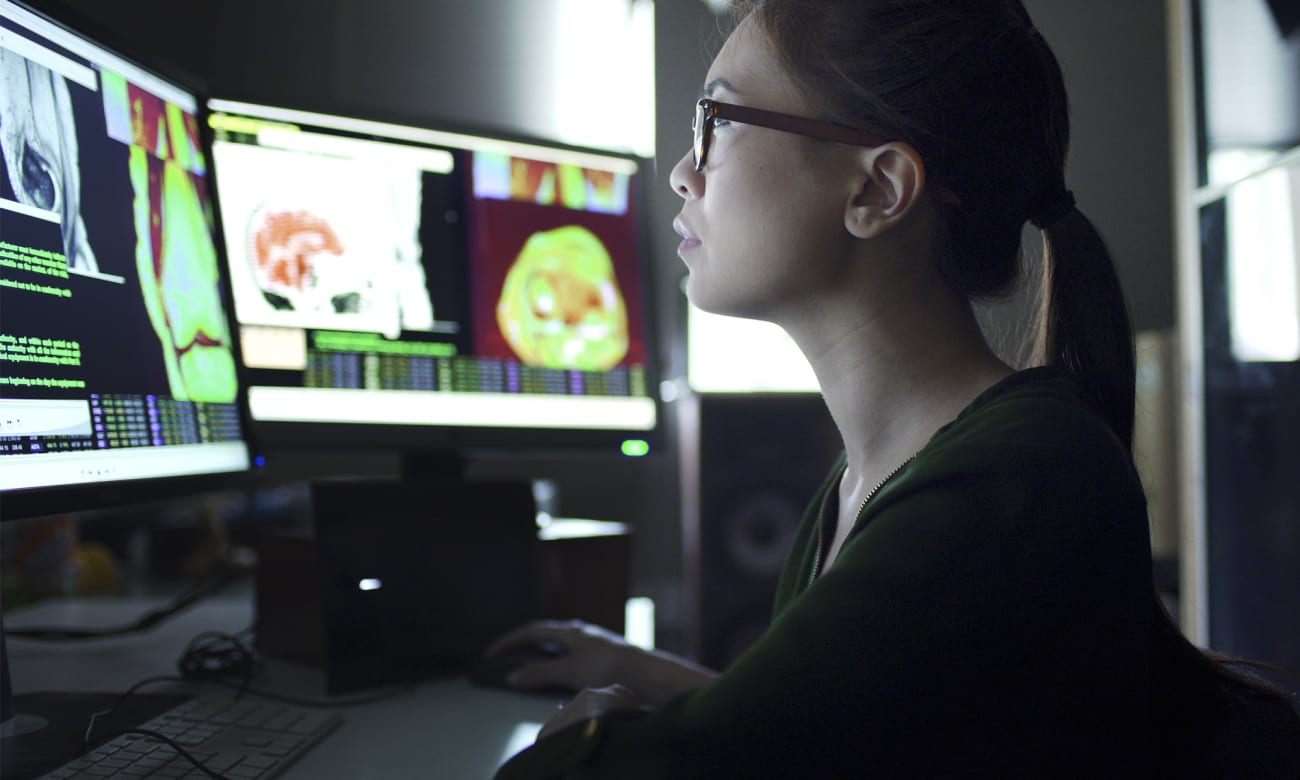
The 2019 DELTA awards offer grants of up to $75,000 each to encourage innovative methods of teaching and learning at The Johns Hopkins University.
A 3D model for neonatal surgery, artificial intelligence training for clinicians and online service learning are among the fresh ideas from Johns Hopkins researchers that have received DELTA grants from the Office of the Provost at The Johns Hopkins University.
The seven winning teams — selected from 43 initial proposals — will receive up to $75,000 each to develop new digital technology initiatives that can enhance teaching and learning at Johns Hopkins, whether online or on campus.
This is the second year of grants from DELTA, short for Digital Education and Learning Technology Acceleration. The program was founded with proceeds from the university’s massive open online courses, or MOOCs, offered in partnership with Coursera.
“After an exciting first round of six projects last year, the 2019 DELTA grants offer Johns Hopkins more opportunities to unleash the innovative power of technology in education,” says Stephen Gange, executive vice provost for academic affairs.
Each grant-winning project is led by a Johns Hopkins faculty member, and all the teams will present their work next spring at the Provost’s Teaching with Technology DELTA Showcase.
The 2019 DELTA grant recipients are described briefly below; more information, including abstracts of all the winning proposals, is available on the provost’s website.
Bridging the Gap: The Role of Telemedicine in Training Future Physicians
The project aims to integrate telemedicine into the education of residents in the emergency department at The Johns Hopkins Hospital, with the goals of improving the patient experience and accuracy of diagnoses. Principal investigators: Fasika A. Woreta and Ingrid E. Zimmer-Galler, both of the school of medicine
Building a Global-Local Connection: Developing a Framework for Online Service Learning
Relying on the expertise of the Student Outreach Resource Center, the Center for Teaching and Learning, and the R3 Science Initiative, the team will examine how to integrate service learning into online classes and develop a pilot course for the Johns Hopkins Bloomberg School of Public Health. Principal investigators: Mindi Levin, Gundula Bosch and R. Tyler Derreth, all of the school of public health
Creating Versatile Online Lectures with Dynamic Tools
The project will explore various audio and annotation tools to find easier ways for instructors to automate the conversion of slides with notes into video lectures, and to translate those lectures into multiple languages. Principal investigator: John Muschelli of the school of public health
Data Science for AI in Health Care: An Online Course
The team seeks to develop online training to equip clinicians and engineers with the skills to design, interpret and report research on machine learning and artificial intelligence in health care, with a new class for students in the schools of medicine and engineering and a MOOC for external learners. Principal investigators: Satyanarayana Vedula, Anand Malpani, Gregory Hager and Mathias Unberath, all of the school of engineering, and Brian Caffo, of the school of public health
Improving Education and Safety in Neonatal and Infant Surgery Through Development of a Neonatal Minimally Invasive Surgery Model
Employing 3D printing technology, the project will refine a model of newborn anatomy with the goal of improving training for minimally invasive neonatal surgery. Through collaboration between the Department of Surgery and the Department of Art As Applied to Medicine, a prototype model has been built and successfully tested, proving that simulation of neonatal minimally invasive surgery techniques is feasible. Principal investigator: Daniel Rhee, of the school of medicine
Justice Pedagogy and Anti-Oppressive Frameworks for Teaching and Learning: Facilitating Faculty Practices to Promote Anti-Oppression and Justice in Public Health
Using hypersegregation in Baltimore City as a lens for understanding how systematic oppression impacts health equity, the team will develop a technology-oriented teaching framework to facilitate a social justice pedagogy approach. Principal investigators: Graham Mooney, of the school of medicine, and Keilah A. Jacques, of the school of public health
Obstetric Triage Web Application
The team aims to build a web app to address the most common triage scenarios in obstetrics, providing individualized recommendations, home remedies and educational resources for before and after pregnancy. Principal investigators: Jeanne Sheffield, Meghan McMahon and Anja Frost, all of the school of medicine
Published in Dome July/August 2019


